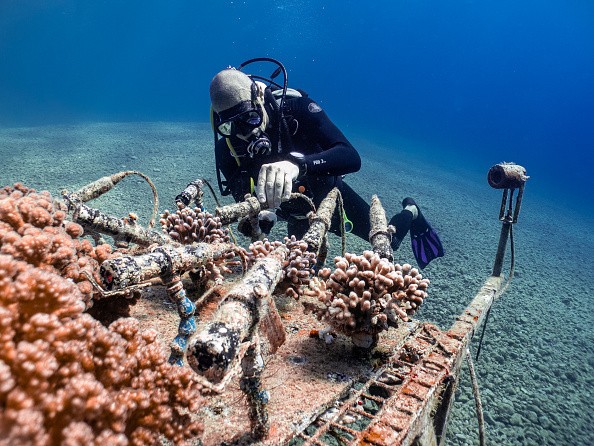Corals live in cold waters in the ocean. The rising water temperatures due to climate change could also impact many corals.
However, scientists discovered in explorations that a black and deep-sea coral could live in warm temperatures; a discovery that could also look into the potential of corals to live in warm waters.

Scientists conduct deep-sea explorations to unravel more about the ocean.
There are times that scientists find something new in the sea that is unknown to books and many.
Deep-sea exploration is still one of the unexplored parts of the oceans, considering the costs and equipment required to study the organisms or species underneath efficiently.
Meanwhile, the role of corals in the ocean is crucial to marine ecosystems and humans.
According to National Oceanic Atmospheric Administration (NOAA), records showed that around 25% of fish rely on the corals for food and habitat.
It serves as a place to reproduce or hide from predators.
Meanwhile, coral reefs are important to people living near coastal areas. They provide protection from potential storm impact.
However, NOAA reports also showed that the coral reef systems suffer from threats, including human-caused pollution, illegal fishing practices, sedimentation, climate change, and diseases.
The report also explained that rising temperatures and ocean acidification contribute to coral reefs' stress and damage.
Moreover, rising water temperatures could also impact coral reefs, damaging or affecting algae that are important to corals.
When it gets damaged, it leads to coral bleaching.
Black and Deep-Sea Coral
As a result, the exploration findings showed that black and deep-sea coral could thrive in warm waters.
In Newsweek's report, marine biologist, Giovanni Chimienti explained that they found feather-like organisms appearing like black corals and immediately collected samples of the said corals.
Chimienti is also a researcher at the University of Bari, Italy.
The marine biologist is part of the team's ocean exploration of OceanX in their expedition in the northern Red Sea.
The coral they collected for a sample lived in a black coral forest.
The sample was then studied in the Red Sea Research Center laboratory. The result showed that the said coral was not known before.
With the discovery, the marine biologist Chimienti added that the deep-sea explorations could unveil new species, adding that the discovery of unknown species could help add to the incomplete image of the deep-sea biodiversity.
Living in warm temperatures
Additionally, the report added that the said coral and other deep-sea species adapted to global warming and climate change, causing the warming of waters.
Chimienti told Newsweeks that the Red Sea was not rich in black coral.
However, the discovery offered an important account of the adaptations and contributions of the said corals.
The report also noted that rising water temperatures due to climate change could threaten marine ecosystems, showing that the deep-sea discovery appears to be tolerant to the warming of the ocean.
And the black coral was observed to be thriving in warm waters that could unveil important findings about the ocean and planet or how deep-sea animals managed to deal with the warming of temperatures.
Related Article : Fascinating Study Uncovers How Blind Cavefish Finds Ways in the Dark
For more similar, don't forget to follow Nature World News.
© 2026 NatureWorldNews.com All rights reserved. Do not reproduce without permission.





